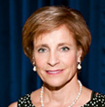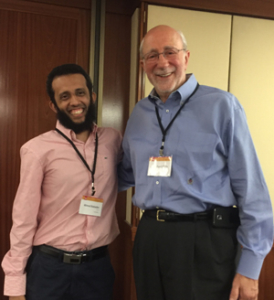Geneva convenes: COPOLCO or Committee on Consumer Safety – National Consumers League
 This week, I’ve been in Geneva with an international group of consumer experts and advocates who are members of COPOLCO, or the Committee on Consumer Policy. COPOLCO is the consumer component of the International Standards Organization or ISO. I serve as Vice Chair of the U.S. consumer entity—within the American National Standard Institute, which is the official American member of ISO—and am here representing ANSI, along with my product safety mentor and former Consumer Union colleague, Dr. David Pittle.
This week, I’ve been in Geneva with an international group of consumer experts and advocates who are members of COPOLCO, or the Committee on Consumer Policy. COPOLCO is the consumer component of the International Standards Organization or ISO. I serve as Vice Chair of the U.S. consumer entity—within the American National Standard Institute, which is the official American member of ISO—and am here representing ANSI, along with my product safety mentor and former Consumer Union colleague, Dr. David Pittle.
So what are standards, why do we need them, and why are they important to consumers?
International standards make things work. They give world-class specifications for products, services, and systems, to ensure quality, safety, and efficiency. Imagine a car built without safety standards—without safe tires or with a loose steering wheel. Or a building without any structural safety or without a proper foundation. The car would undoubtedly crash, and the building would collapse. I should note that in the United States, many standards protecting consumers are drafted and enforced by federal agencies like NHTSA, CPSC, FDA, USDA, EPA, etc.
Standards are also instrumental in facilitating international trade. ISO has published more than 21,000 International Standards; all are voluntary standards, but they are specifications that are agreed to by stakeholders from around the world. For developing countries, these that may be all they have for standards. And these standards cover almost every industry, from technology, to food safety, to agriculture, and healthcare. ISO International Standards affect everyone, everywhere.
As important as standards are, consumer participation in the setting of these standards is equally critical. Consumers are the very people affected by products and services and how they work—or don’t. There are two distinct groups participating in this: those who work for the country’s standard setting government agency, and those (like me) who come from a private consumer organization.
What I find most exciting is meeting my consumer counterparts from around the world and rolling up our sleeves and drafting standards together.
I learn a lot from colleagues from developed countries who have been attending these meetings for decades—Australia, Western Europe, and Canada come to mind—about the standards they are working on. Representatives from the UK today described the battle consumers had with energy companies who claimed they owned the meters and therefore the data from those meters. The consumer representatives said disagreed and fought back, arguing that the data is private, personal information that belongs to the consumers, not the energy companies.

I also learn a lot from meeting colleagues from developing countries. At lunch today, two representatives from the government of Panama told us there were no consumer standards in Panama until 1999. I found that hard to believe, but they assured us it was true. They also told us that every time bread is sold in Panama it is weighed to prevent fraud!
Today we had a robust discussion on whether the sharing economy—ride sharing and shared housing rentals—should be subject to international standards. We also discussed whether to develop standards on financial literacy for youth, an issue near and dear to NCL.
Attending this conference are representatives from Trinidad and Tobago, Malaysia, Columbia, Saudi Arabia, Singapore, Korea, Fiji, South Africa, Italy, Namibia, Australia, Sweden, Canada, Greece, and all of Northern Europe. I’m sure I’ve missed a few countries, but this gives you a sense of the breadth and depth of participation. That said, there are many more consumer representatives who might have come if they had the resources to travel and the support of their country. We discussed how to find that support here today as well.
But for the officials that are here, the engagement of their countries in developing standards for safety and quality is incredibly important for the world’s consumers, and it’s an honor to be part of the process.














